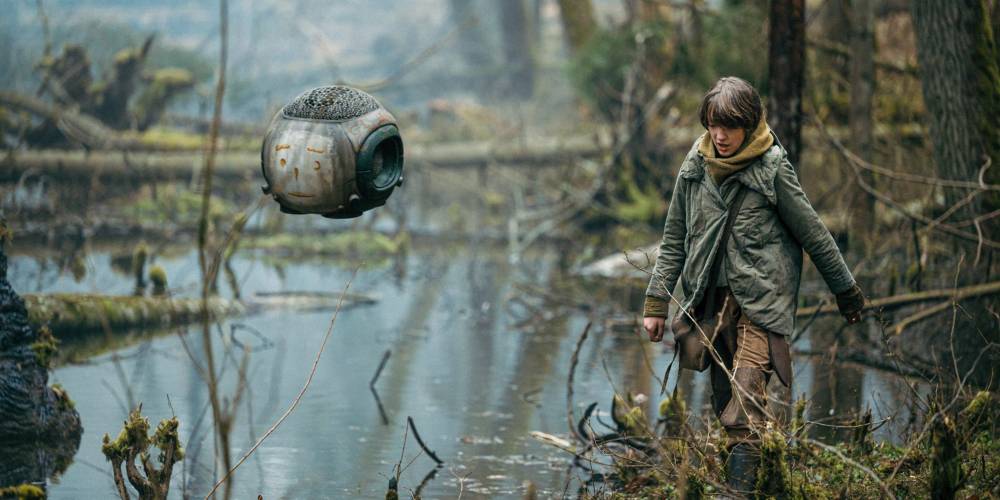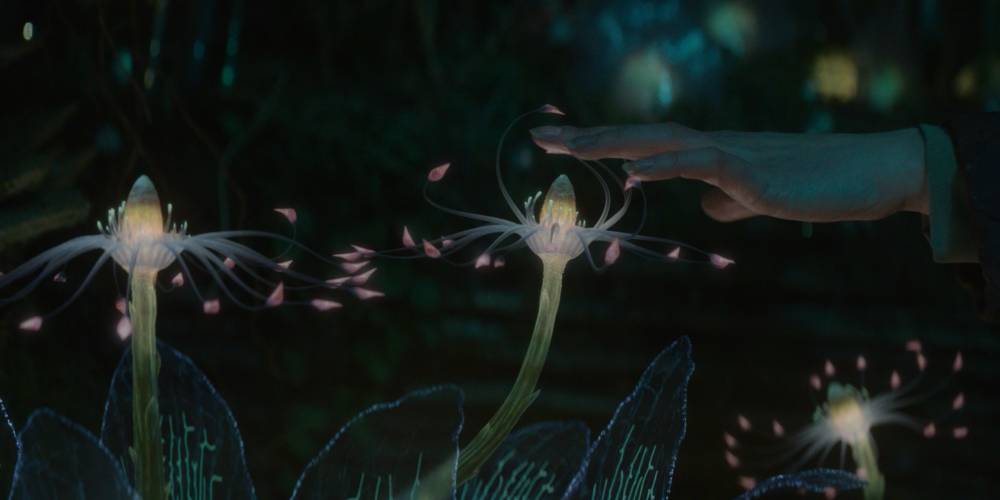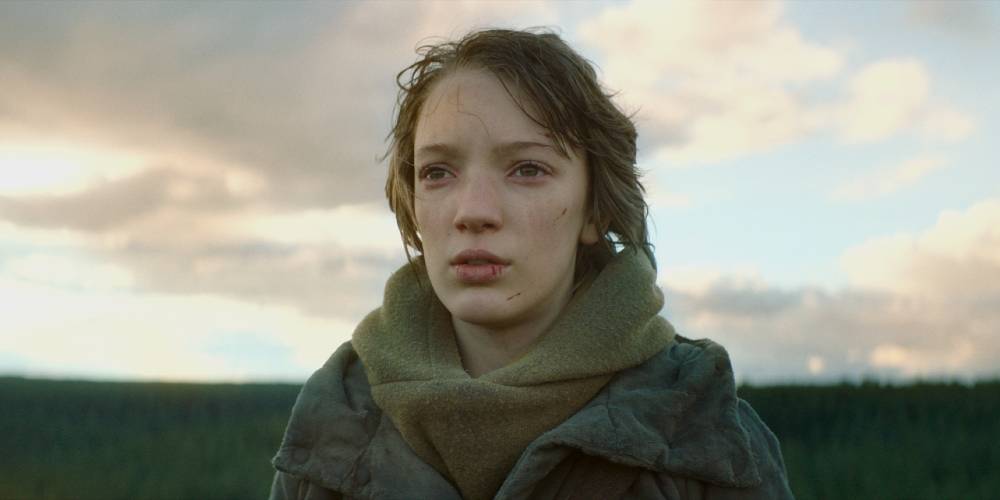Read also:
How to Watch FX Live Without CableHow To Watch AMC Without CableHow to Watch ABC Without CableHow to Watch Paramount Network Without CableYoung star Raffiella Chapman acquits herself well as a teenage scientist and survivor in a world whose beauty moves in time with its viciousness.
Vesper (Raffiella Chapman, His Dark Materials), a lone teenager clad head to toe in weatherbeaten cold-weather gear, expertly ferrets her way through a blighted field. She’s looking for the remains of dead crops—critical samples for her ongoing bio-engineering research. A floating drone—humanized by an awkward, endearingly childish face that’s been carved on it—accompanies her. Her father, Darius (Richard Brake), pilots the drone. Left paralyzed and fragile by war and a relentless artificial biosphere, Darius does what he can for his daughter. In the distance stand colossal machines long left to rust, their purpose obscure.
At the edge of the field stands a great forest whose flora and fauna are almost as dangerous as humanity—and which leads to the decaying farm where Vesper and her beloved Pap live and work. Further up the way lives Jonas (Eddie Marsan, Wrath of Man)—Vesper’s loathsome uncle. He makes his living by trading his many kids’ blood to the reclusive inhabitants of the Citadel fortress cities, and he sees a lot of Vesper’s vanished mother in her—too much. He wants her as breeding stock, willingly or otherwise. Vesper deals with—and steals from—him as needed. So go their lives.

Directors and writers Kristina Buozyte and Bruno Samper (who previously collaborated on Vanishing Waves and were assisted on Vesper‘s screenplay by Brian Clark) introduce Vesper, Darius, and their world deliberately. Their routine is rattled by a dangerous disruption, forcing Vesper to trade blood to Jonas to secure the bacteria she needs to make Darius his daily meds. And even that extreme measure is familiar—Vesper knows Jonas’ slime all too well and is comfortable subverting his farm’s electric fence. Buozyte and Samper’s world’s been ruined for a long while—long enough for the ruin to become Vesper’s normal.
Chapman, who spends significant portions of Vesper on her own or with only Darius’ drone prop for a scene partner, proves a worthy lead. She’s guarded and cautious and yet still thrilled by discovery. She’s a brilliant biochemist whose work is driven by necessity and a teenage dream that the world’s failed to crush despite its harshness. She moves through the world with such well-learned confidence and precision that when she embraces a rare chance to set down her burdens and be a goofy kid, the change in her body language and line delivery is striking. It’s fine work and of a piece with the precision Buozyte and Samper bring to Vesper elsewhere.

Indeed, “precise” is one of the best ways to describe Vesper as a whole—from Chapman and her peers’ performances (particularly Marsan’s all-too-matter-of-fact creepery and Rosy McEwen’s turn as deuteragonist Camellia–a stranded Citadel woman who turns to Vesper for help and gradually befriends her) to Feliksas Abrukauskas‘ bleak, colorful cinematography to Raimondas Dicius and Ramunas Rastauskas‘ gloomy, practical, occasionally stunning production design. The care Vesper‘s creators put into it is evident throughout. A prime example? The depiction of its future biosphere.
Like the moon of Pandora in James Cameron’s Avatar series or the Toxic Jungle of Hayao Miyazaki’s Nausicaä comic and, to a greater extent, film (the comic goes deeper in its exploration), Vesper‘s biosphere exists beyond the confines of the film’s story. Throughout Vesper’s journey, some (but far from all) of it is introduced to the audience and explored through her study of it—a study that, between the nature of the scientific process itself and the sheer vastness of its subject, is far from being done. The result enhances Vesper‘s intimacy (in that the title character’s research reveals a great deal about her) and its vastness (in that what’s shown is a tiny fragment of a much larger world).

All told, Vesper is quite a good film. To be sure, it’s bleak and deliberate—not a four-quadrant picture by any means—but I dig bleak and deliberate, especially when crafted with such care. Raffiella Chapman’s work as the title character is excellent, the visual effects are strong, and it sticks its ending. This is well worth checking out.
Vesper wanders the wilds on AMC+.